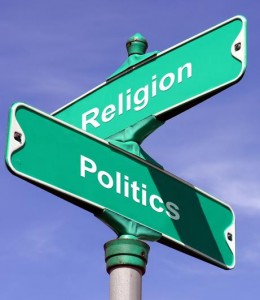 Anglo-American Analytic Philosophy has steadily distanced itself from Continental Philosophy for many reasons, but the defining difference must be with respect to the correlation of meaning with textual intent. Continental Philosophy deconstructs (at least in recent years) and as a phenomenon there is cultural significance to the motivation to tear down the assumptions that we have carefully nurtured from the Enlightenment through to Modernism. Meaning disconnects from words. It slurs. And reinvention is the only persistent motivation.
Anglo-American Analytic Philosophy has steadily distanced itself from Continental Philosophy for many reasons, but the defining difference must be with respect to the correlation of meaning with textual intent. Continental Philosophy deconstructs (at least in recent years) and as a phenomenon there is cultural significance to the motivation to tear down the assumptions that we have carefully nurtured from the Enlightenment through to Modernism. Meaning disconnects from words. It slurs. And reinvention is the only persistent motivation.
Arguably, though, it is only Continental Philosophy that cares about politics and culture, which makes it less abstract and irrelevant than the thumb twiddling of the analytic strain. Modern culture and our claims about significance are the lambs for the slaughterhouse. I thought of that voting in one of California’s ever-present elections today. Simon Critchley carried the water for me with his recent argument that politics is essentially religion (side-note: check out his discussion of Philip K. Dick in the New York Times recently; nothing really new to anyone who has read the VALIS books, but the facts concerning Dick’s later years and death are worth understanding). How is it religion? Because it is easy to redraw the semantic map in Continental Philosophy. Words mean what they are positioned to mean and the positioning is highly variable. The only solidity is in faith-based attachment to a theory of meaning, and politics exemplifies that in a way that is passingly second to religion itself.
We can see the effects of this religion in the defining political conflict of our era. The Pew Research Center’s new report, Partisan Polarization Surges in Bush, Obama Years, shows this political religion at work. On a majority of issues, the study shows, among Americans who self-identify as Democrats, Republicans, and Independents, there has been a steady increase in the disparity between opinions. If there was an “ultimate” rational basis for deciding policy, and if policies ultimately worked without ambiguity and trade-offs, we should be converging towards democratic perfection (or Marxist perfection, or something). It just ain’t so, though, and will likely never be for Critchley. The best we have in America is the remnants of deism expressed in the collective ciphers that ennoble Enlightenment aspirations, and the symbols that hang from those early yearnings like the rotating placards of a mobile. We only have the shadows: jeremiads over America’s ashes, expectations built on original sin, odes to the failures of progressive ideals, and the cultural symbols that support them.
It is easy to retreat away from this religion, and many Americans do. Don’t vote. Don’t discuss politics. The weather is always interestingly uncomplicated. There is no adjusting the rationality of others, only a slow effort at proselytization. It then becomes a matter of the relative offensiveness of one political religion or another. Who said the most reprehensibly unjustifiable thing? And there are open opportunities to deconstruct and ridicule the strongest claims by politicians and their supporters of all stripes. By doing so, we become cynical critics of these religions but are at least engaged and empowered within the system. So vote early and often, and hone your mocking circuits for going after high value targets. Doubt is the perfect antidote to religious assumptions, but should not be seen as leading to apathy. Instead, doubt is a cure-all for certitude that leaves the door open for action.
One thought on “Politics is Religion”